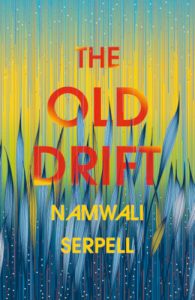Update 25 Sep 20: Serpell has donated her prize money to bail funds for protestors in the United States who are fighting for racial justice, in the wake of the decision by prosecutors not to charge Breonna Taylor’s killers:

Zambian author Namwali Serpell’s novel The Old Drift has been announced as the winner of this year’s Arthur C Clarke Award, presented annually for the best science fiction novel published in the United Kingdom in the previous calendar year.
The award is named after the prolific British author of 2001: A Space Odyssey and dozens of other books, who gave a grant to establish it in 1987.
The judges described Serpell’s novel as ‘stealth sci-fi’. The epic text, of almost six hundred pages, covers the entanglement of three Zambian families over the course of a century, and was also shortlisted for the LA Times’ Ray Bradbury Prize for Science Fiction, Fantasy and Speculative Fiction (eventually losing out, in that case, to Marlon James’s Black Leopard, Red Wolf).
Writing in The JRB, Wamuwi Mbao called The Old Drift a ‘blazing debut’ that ‘constructs a labyrinthine tower of narrative, beginning in the muggy past and ending in Anthropocene disaster’.
‘It is a wittily erudite novel,’ he wrote, ‘one that abounds with historical detail and techno-fantasy and mixes them so that we can no longer separate the one from the other.’
Last year’s Arthur C Clarke winner was British-born Yoruba writer Tade Thompson, for his novel Rosewater. Thompson became only the second African author to win the award. South African author Lauren Beukes won the 2011 edition of the prize for her novel Zoo City, while Nigerian–American writer Nnedi Okorafor was shortlisted in 2016 for The Book of Phoenix.
It was Thompson himself who announced Serpell as this year’s winner:
Serpell, who won the Caine Prize for African Writing in 2015 for her short story ‘The Sack’, was delighted by the win:
Per the prize’s rules, Serpell receives an engraved bookend and a cheque for the number of pounds sterling equal to the current year, or £2,020 (about R44,000). Memorably, she split the £10,000 she received for the Caine Prize with her fellow shortlistees; perhaps she’ll make a similarly path-breaking gesture in this case, too. (She did; see the update at the top of this article.)
The Old Drift competed with five other books for the award; see the complete shortlist here. The award’s judges are nominated by its supporting organisations, currently the British Science Fiction Association, the Science Fiction Foundation and the Sci-Fi-London film festival.
The JRB extends hearty congratulations to Serpell for her win!





